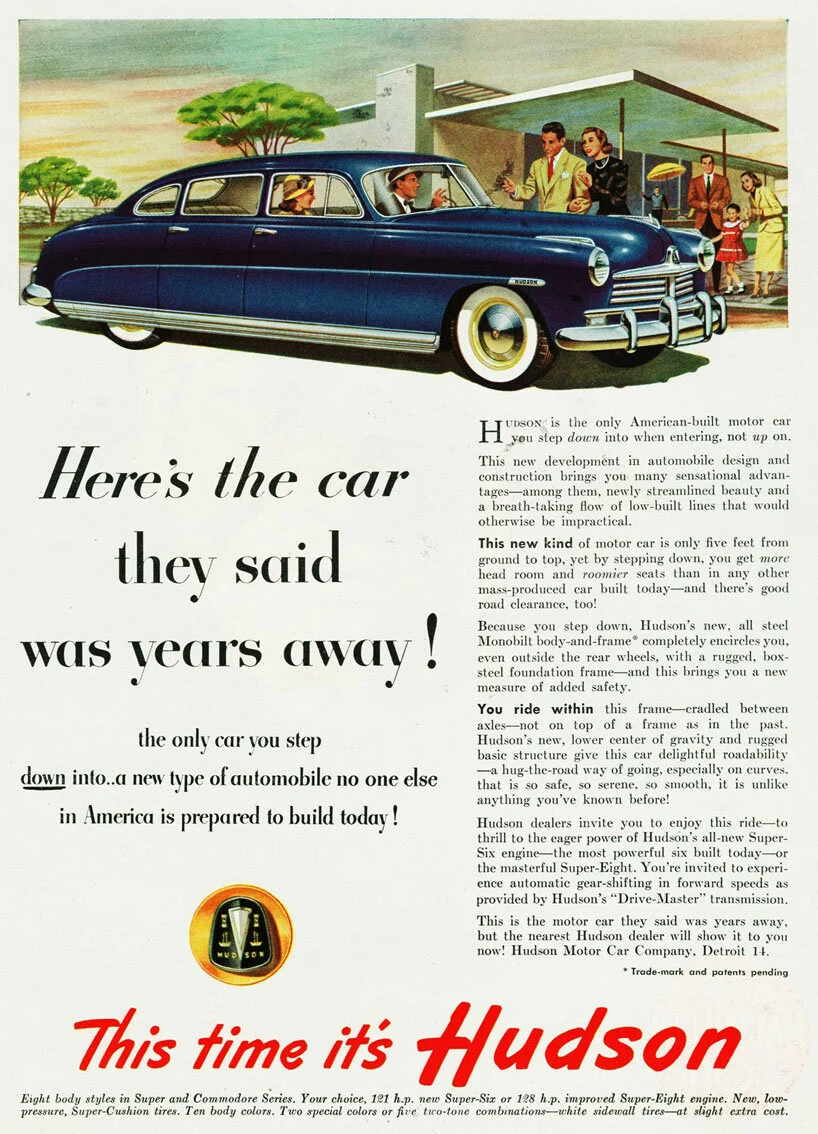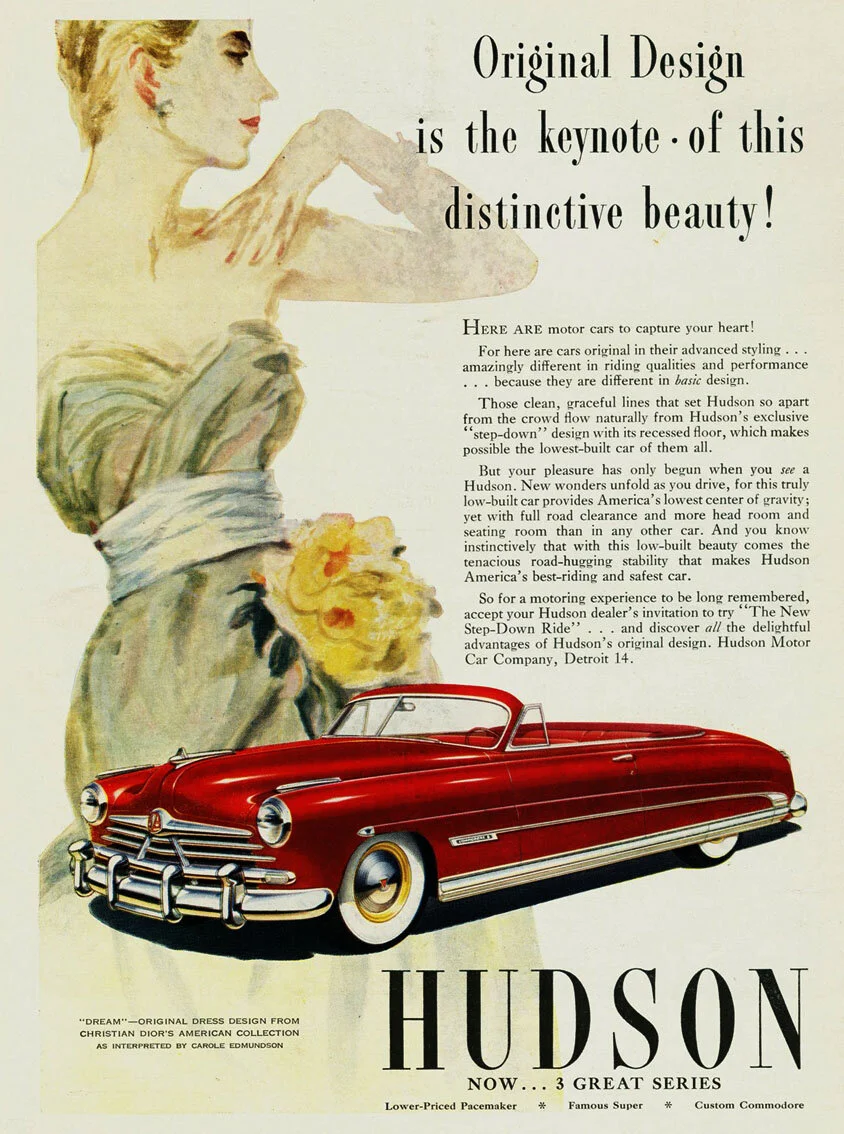The Hudson Motor Car Company was first established in Detroit in 1909, the name lasting until 1954 when it merged with Nash-Kelvinator to form AMC - American Motors Corporation. The Hudson brand continued until 1957 and though there were plans to bring out an all-new Hudson for 1958, it never materialized. AMC had decided not to compete directly with the big three, so would focus on smaller cars, meaning traditionally larger cars wearing the Hudson nameplate would be sacrificed.
Here we focus on the last decade of Hudson production, during which time its successful ‘step-down’ models sold in large volume. A success from the outset, Hudson stole a march on the larger manufacturers with their rugged step-downs, offering a lower center of gravity that lent itself to good handling and therefore, success on the racetrack. Step-down design also made for a racier profile as if offered stylists the option of lower roof lines and better aerodynamics. All in all the Hudson step-downs were ahead of their time.
For the 1951 model year, Hudson’s six cylinder engine received a new block with thicker walls and other improvements, boosting power and torque, making Hudson a hot performer for the time. With a wider front track Hudson was powered to victory on the racetrack by the famed 308-cubic-inch Hornet straight six with the optional high-compression cylinder head and dual-carb manifold known as ‘Twin-H Power’.
Hudson's strong, light-weight bodies, combined with the high-torque inline six-cylinder engine made the Hornet a champion on America’s racetracks, dominating NASCAR from 1951 to 1954.
The lesser known Hudson Commodore step-down of 1949 received posthumous fame thanks to it being the car driven across the USA by Neal Cassady in Jack Kerouac’s famous beat novel On The Road published in 1957.
Jack Kerouac’s famous On the Road featured legendary beatnik Neal Cassady - seen here behind the wheel of the ‘49 Hudson Commodore that features in the novel.
The Hornet, in racing guise, found fame all over again in the 2006 Pixar animated hit film CARS. Legendary actor and former race car drive Paul Newman voiced the animated ‘Fabulous Hudson Hornet’ that was based on the real AAA stock car champion raced by Marshall Teague and Herb Thomas in the early ‘50s.
Doc Hudson - the animated Pixar character voiced by Paul Newman in the 2006 hit movie CARS.
















































